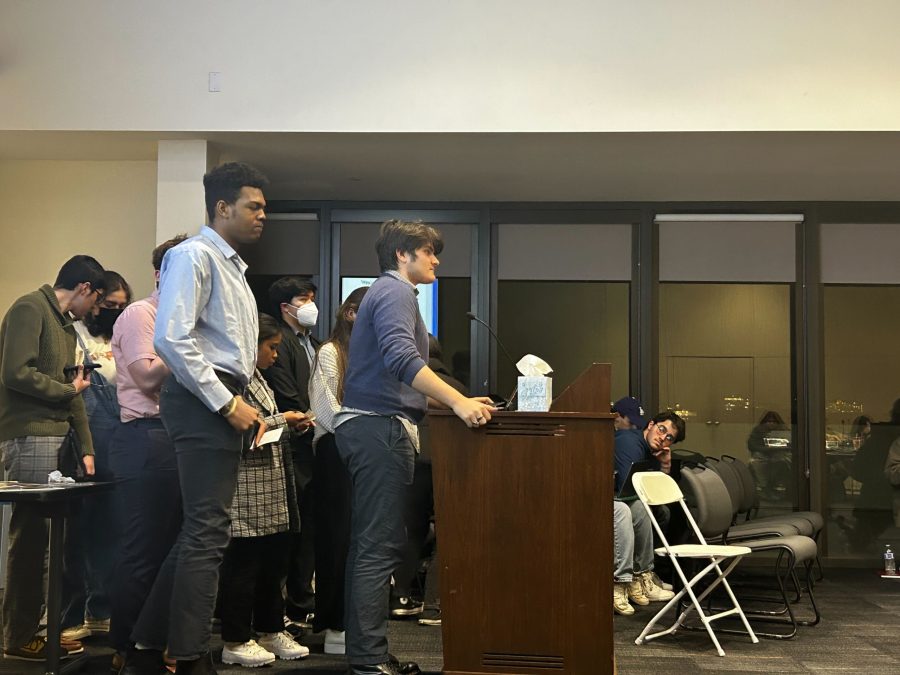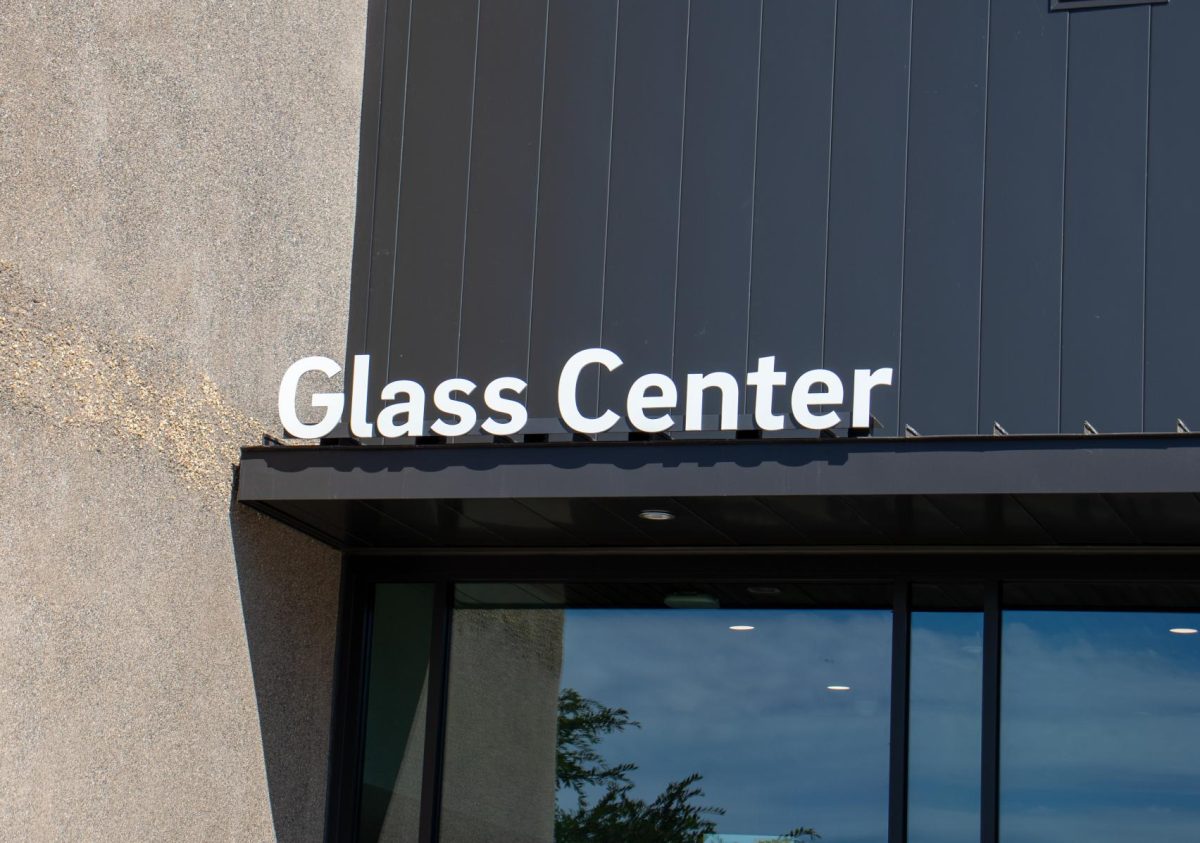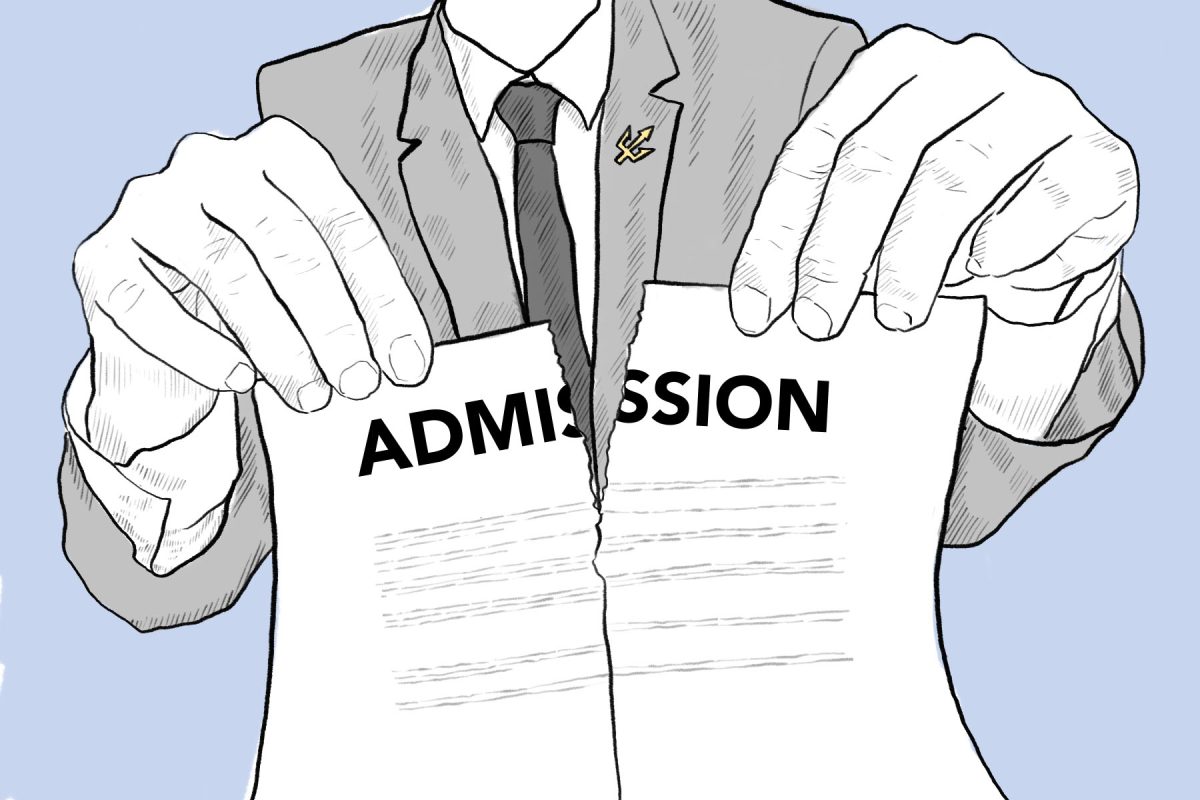The A.S. Office of Local Affairs presents their Disability Justice Campaign to Senate Members after three years of voicing the concerns of disabled students at the University of California with little to no administrative action.
UC San Diego has a growing disabled student body, but a weakening financial and mental support system is pushing the limits of the disabled community on campus.
In 2020, the Supporting Students with Disabilities at the University of California met with members of the Academic and Student Affairs Committee to discuss the experiences of students with disabilities across the UC campuses.
During the hearing, the Office of the President provided data highlighting the growth in disabled students receiving accommodations, which increased from 5% to 7% between 2017 and 2020. A total of 18,943 students with disabilities received accommodations within the UC system in 2020.
UCOP provided this data in order to highlight the urgency of increasing funding for resources that help provide accommodations and assistance for disabled students.
Last year, the A.S. Office of Local Affairs presented their Disability Justice Campaign, and Associated Students passed a resolution. It resolved campaign demands — from the Office for Students with Disabilities assembling a student advisory committee to the Triton Transit Mobility being required to reform their services for disabled students.
In March of 2023, the A.S. Office of Local Affairs returned to the senate chambers to reaffirm not only the same Disability Justice Campaign, but also to voice the exhaustion of a disability justice resolution being passed by Associated Students yet dismissed by the government body.
“We realized A.S. passes a lot of resolutions, in some sense are, inherently, performative [regarding A.S. not taking action from last year’s resolution]. We come here with a plan of action as to how we’re going to achieve those demands in the first place,” Daniel Alerandro Soria, the Vice President of Local Affairs, told The UCSD Guardian.
Last week, the A.S. Office of Local Affairs presented their campaign with 10 demands, and shared the space for testimonials from disabled students at UCSD.
“To go to our system here at UCSD and to tell my trauma and for [an OSD consultant] to look at me with the straightest face possible and tell me ‘you do not have PTSD,’” said Vice President of Academic Affairs, Rhianen Callahan, as they addressed the board about the failures of the Office for Students with Disabilities. “Even though I was diagnosed by four therapists and three psychiatrists. Therefore, my experience was invalid and I could not get the support I needed. That was when I stopped trying to get official support.”
Within the hearing, OSD was mentioned several times. Each time, the speaker referred to the department having confusing processes to follow. A.S. Local Affairs Chief of Staff, Cassie Pina, expressed how it was difficult to go through piles of paperwork so she could get approved for accommodations for ADHD.
“I was confused,” she said. “I was frustrated. I had to submit my accommodation letters three times.”
After the testimonials, ASOLA opened with UCSD’s lack of action in accommodating not only the academic needs of disabled students, but the failure to provide safe community spaces and creating a more accessible campus for disabled students.
A map was proposed to the committee, which would include elevator and ramp locations, along with accessible routes on campus. This map would be accessible on the OSD website for students to use.
ASOLA also highlighted the infrastructure design of UCSD, citing the Kahnop, To Tell a Story pathway. The pathway runs through the Visual Arts building, past the Epstein Amphitheater, and leads to the trolley station.
“It’s very bumpy, and it’s not very accessible,” Misaki Mendoza, the Land Use Advocate for A.S. Local Affairs, said. “Imagine how somebody with a disability who needs a wheelchair [might feel]. This is hostile architecture that we believe should not be encouraged on campus.”
Further, Alerandro Soria expressed the absence of a community space for disabled students as there is currently no Disabled Student Resource Center on campus. He expressed how disabled students, himself included, would like to see a space for more than paperwork and consultations, since the only communal space as of right now for disabled students would be the OSD Office.
Although voiced in 2023, the demands aren’t new. They were listed in the submitted discussion item for Supporting Students with Disabilities at the University of California to the members of the A.S. committee.
In their 2020 demands, “lack of accessible design in building infrastructure and furniture” and “lack of disability awareness/training for Staff and Faculty” were listed as key points.
According to a UC Access Report referred to in the demands list in 2020, buildings on UC campuses failed to comply with ADA regulations. UC students reported the lack of wheelchair-accessible routes and furniture including accessible lecture hall desks and hands-free building entrances. Students also reported elevators being down for extensive periods of time.
Three years later, the infrastructure issue persists. Misaki proposed an updated map of construction sites on campus with possible pathway blockages for all students to use before planning their journey to where they need to be on campus.
Further, he proposed special signs indicating speed of sidewalk declines or steepness of inclines to help disabled students better understand the pathway they may choose to take.
Overall, UCSD’s infrastructure is flawed, as highlighted by UCSD’s Fund the UC Campaign Coordinator, Eduardo Tapia Jr-Urbieta.
“There’s a lack of accessible housing,” Urbieta said. “There are some buildings that are really tall and some students might have a wheelchair and are not able to reach the place they live just because the elevators are broken.”
Moreover, in the same 2020 UC Access Report, DSS Directors and UC Access Now have cited microaggressions and continuous misunderstanding toward students with disabilities from campus staff and faculty.
“I’ve been at this university since Fall of 2015,” Lena Morin, a UC San Diego student, said in her testimonial to the committee. “I’m still trying to finish my undergrad degree. I had to fight hard to be recognized [by the university]. This school prides itself on diversity, equity, and inclusion but it also needs to enforce those policies. I have a primary care physician on campus who has been so frustrated with the system to the point where he wants to retire.”
Despite lack of action, disabled students at UCSD are uniting to advocate for themselves and fight for these demands. As the UC system expands and acquires a larger student body, the system is pressured to meet the demands of the growing representation of the disabled community on UC campuses.
Towards the end of the meeting, Callahan motioned to present the campaign to the Undergraduate Council for a sponsorship, and to be presented to the Representative Assembly for UCSD.
After A.S. was directed with what processes will come after the hearing by Callahan, Alerandro Soria turned to the public and other A.S. senate members and adjourned the meeting with this statement.
“Everyone within student government at UCSD can definitely play a role when it comes to [the campaign],” Alerandro Soria said. “That can be through having conversations within your college council. It can be through joining us in rallies. It can be through utilizing your social media platforms.”
Photo by Louis Avalos for The UCSD Guardian













